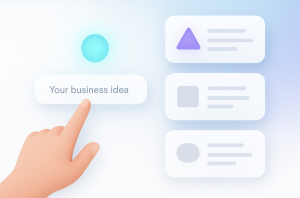Smart Strategies For Starting Employee Recognition Programs

Business success is never an accident. It’s a result of a perfect storm of ideas, innovation, and implementation. One overlooked factor in this potpourri of factors is employee happiness.
It’s quite simple, a happy and positive employee is also likely to be a productive one. Free of the oppression of micro-management, he or she is loyal and persistent and works hard and learns from mistakes. Every day, this employee aspires for perfection.
Some proven ways of building a happy workforce are to provide incentives and rewards to boost productivity. Let’s look at some smart strategies to increase engagement.
Host an Employee Recognition Awards Night
Host a big event night in a hotel ballroom, complete with an emcee, trophies, and entertainment. Make it a red-carpet event.
This once-a-year, night-to-remember employee recognition awards night will provide a cornucopia of benefits. It will play a mission-critical role in jazzing up your employees. How? By boosting your staff’s morale. By giving everyone a chance to socialize in a glitzy setting. And by offering your people a new image of your company: a fun place to work.
Encourage Friendly Competition
Fierce competition is a useful way to manage a project. It’s a subtle way of encouraging two or more teams to get enthused about a company project. And it’s possible to avoid conflict between teams by setting the right tone.
After setting up a stretch goal, providing guidelines on what project to complete, and establishing a deadline, then all you have to do provide honest feedback on performance.
Naturally, there should be some reward after the project is completed. This can range from a meaningful cash award to providing a paid vacation to an exotic location.
Catch People Doing the Right Things
Ken Blanchard, the management guru, has a unique way to build up company morale. He suggests reversing the corporate trend of managers catching people doing something wrong with the intention of correcting behavior, encouraging productivity, and increasing efficiency.
It’s easy enough for managers to spot employees messing up. Besides catching them in the act of doing something the wrong way, they also have statistical data to notice when things go awry. Criticizing someone on the floor or calling them into the office to chastise them in private has the opposite of the intended effect. Instead of encouraging productivity, it increases disengagement, and instead of improving efficiency, it creates more nervous ineptitude.
What works is using observation and metrics to notice when someone is doing something right and commenting on it. Instead of making discouraging comments, managers should make encouraging statements. When people feel good about themselves and the work that they’re doing, they’re more likely to self-correct any performance glitches.
Provide Employee Training
In truth, everyone wants to do a good job. Often when they don’t, it’s not because they don’t care but because they don’t know how to do things in a better way. The difference that makes a difference when it comes to boosting employee performance is training.
Employees who receive the in-house coaching and training that they need stop doing the things that don’t work and start doing things that do work. If you can improve knowledge and skills across a wide range of employee tasks, there will be a net improvement in company productivity. Strengthening a wide range of employees’ skills strengthens the whole organization.
Reward Big Ideas in the Workplace
Introducing a steady stream of big ideas into your business will help your company grow faster. While its common for businesses to rely on the leadership team to come up with the best ideas, this is not the only source of inspiration and innovation. An executive or manager can only see things from a big picture perspective. Their vision is limited by the role they play in an organization. But workers on the floor or sales reps in direct contact with customers often have a unique perspective on how the business can do things better.
The way to elicit big ideas from every employee is to provide financial incentives and public recognition for each brilliant idea proposed. Collecting ideas can be as simple as setting up suggestion boxes and then handing out generous checks to employees who come up with game-changing ideas.
What do all these incentives and rewards have in common? They recognize employees for their good work. When employees feel appreciated, they become motivated to continuously improve their performance on the job. As a result, productivity improves.





